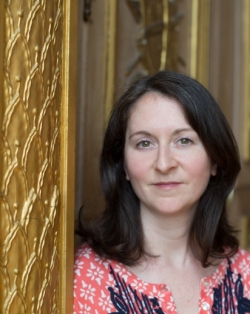Spring 2027
Application Deadline
Feb 1, 2026 3 Months
1 Week
5 Days

The Department of Art History offers a foreign study program in Rome, Italy, one of Europe's richest artistic centers. Classes are taught on site and at the Dartmouth Rome Center by a Dartmouth faculty director, an architectural specialist, and a language instructor. The Art History curriculum examines the monuments of the city, their creators, their patrons, and their various audiences. One course focuses on a cross-temporal selection of sites of particular art-historical interest as well as on major artists who worked in Rome, examining issues of narrative, iconography, social history, gender, perception, and stylistic analysis. Another course examines the evolution of architectural forms in the Early Modern period, as manifested by specific types of buildings--such as churches, palaces, and villas--and explores their urban contexts.
About 15 students are selected for the program.
For more information about applying for this program, see our webpage on How to Apply & our FAQs under section 2 (How to Apply: Application)
 Katherine Hornstein Professor
Katherine Hornstein Professor ARTH | 26.01 | 90:
History of Art in Rome
ARTH | 26.02 | 90:
Early Modern Architecture in Rome
ARTH | 26.03 | 90:
Language and Culture of Rome
Advanced Italian (Italian 3, 9 or 12) may be available for those that have already completed Italian 2. Please inquire with the faculty director or the Guarini Institute regarding advanced language options.
 Ada Cohen Professor
Ada Cohen Professor Students will live in shared, self-catered apartments/flats equipped with kitchen facilities for preparing meals. Apartments are situated in the historic part of Trastevere around Piazza San Cosimato. Students should expect to share a bedroom and bathroom with other students. All students committed to this program will complete a housing preference form for shared housing and roommate placements.
The program also includes one or more field study excursions to sites outside Rome. In recent years, destinations have included Naples, Pompeii, Tivoli, Florence, and Venice.
For more information, please see the department website.
The fees charged by the College for a Dartmouth-sponsored off-campus term of study include regular tuition charges for a term at Dartmouth, service fees, as well as the specific costs established for each off-campus study locale. In many programs, the room and board costs tend to be higher than for a term in Hanover. You can view a budget sheet for each program by clicking on the appropriate term under "Financing Your Program". The cost of transportation to and from the site is the responsibility of the student.
In order that all qualified Dartmouth undergraduate students may have the opportunity to take part in off-campus programs, the College endeavors to adjust its normal financial aid awards for students already receiving aid. Tuition and expected family contribution for Dartmouth's off-campus programs are the same as for an on-campus term.
All costs, including airfare and spending money, are considered when determining the cost of an off-campus program. Any costs more than a typical term in Hanover are met with additional Dartmouth Scholarship Funds. If you have a work expectation for the term, this will be replaced by scholarship funding for programs that span the entire term.
Students are responsible for purchasing their own plane tickets and, in many cases, meals. Often, families find that they owe less for billable items for study away terms but will instead use more of their expected family contribution towards indirect costs such as the flight and meals. For help sorting out who pays what and how, contacting the Financial Aid office is often advisable.
Financing your program | Financial Aid | Scholarships | Budgeting & Costs